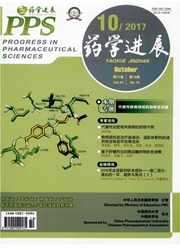

 中文摘要:
中文摘要:
2型糖尿病(T2DM)的发病机制主要与遗传因素和环境因素相关。而遗传变异和环境因素可通过表观遗传修饰,如DNA甲基化等影响相关基因的转录与表达,导致胰岛β细胞的胰岛素分泌异常和机体对胰岛素的耐受,最终影响T2DM的发生。综述胰腺、骨骼肌、肝脏、脂肪组织和外周血等胰岛素重要靶器官中相关基因DNA甲基化改变及其在T2DM发病机制中的作用研究进展,为T2DM个体化治疗提供新思路。
 英文摘要:
英文摘要:
Both genetic and environmental factors were implicated in the pathogenesis of type 2 diabetes mellitus (T2DM) by altering the transcription and expression of disease-related genes through epigenetic modification, mainly DNA methylation. This could lead to impaired insulin secretion of pancreatic cells, insulin resistance and consequently the occurrence of T2DM. In this article, research advances in the changes of methylation level of related genes in insulin-sensitive organs such as pancreatic islets, skeletal muscle, liver, adipose tissue, peripheral blood cells, as well as their involvement in pathogenesis of T2DM were reviewed, so as to provide new ideas for personalized treatment of T2DM.
 同期刊论文项目
同期刊论文项目
 同项目期刊论文
同项目期刊论文
 期刊信息
期刊信息
